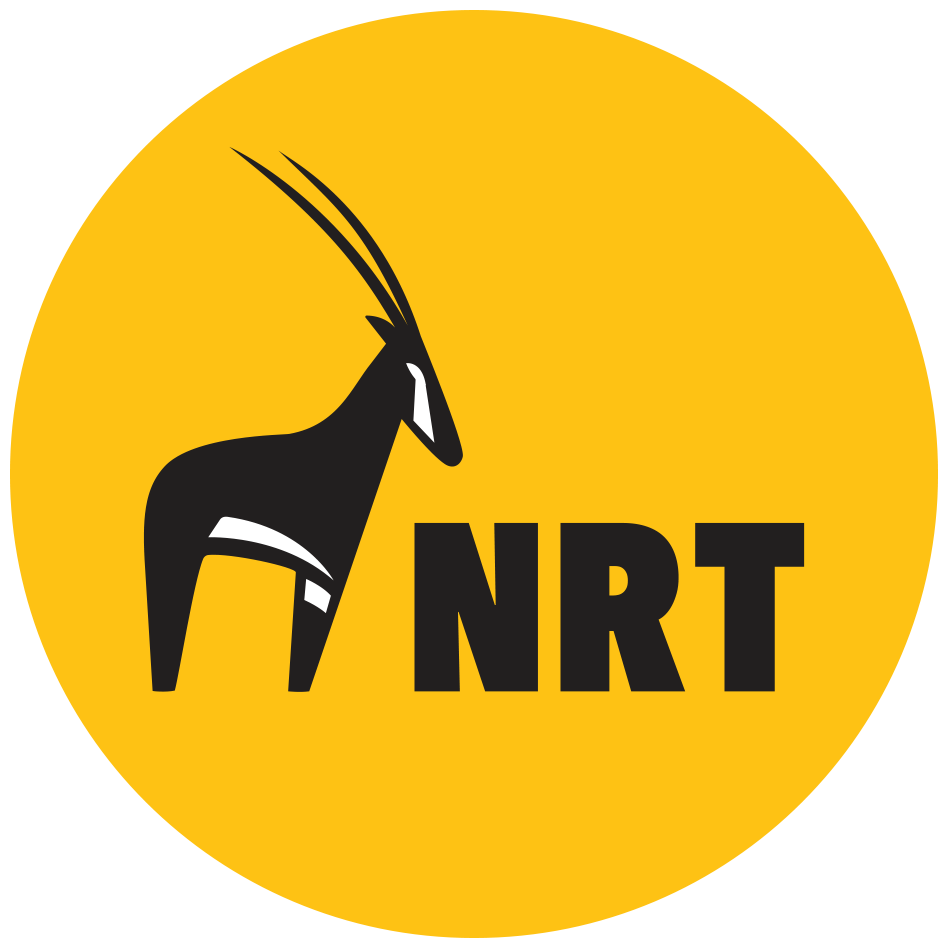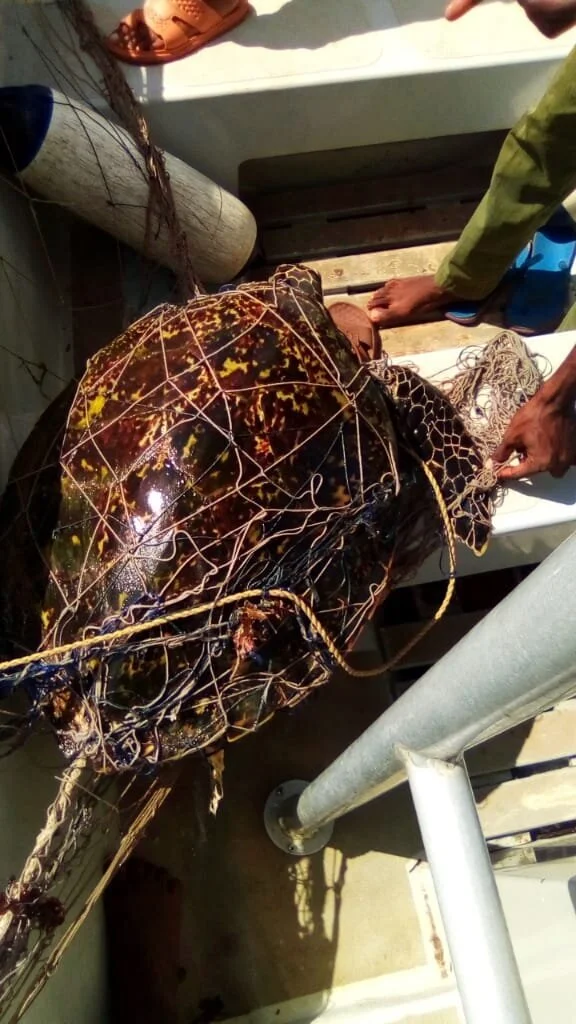#10Guardians; Turtle Hero Ahmed Mohammed
TURTLE GUARDIAN: Ahmed Mohammed
For Ahmed Ali Mohammed, a ranger in Kiunga Community Conservancy, releasing baby sea turtles into the ocean is one of his happiest moments.
This journey begins when a nesting female turtle comes to the island at night, digs a nest in warm sand using her back flippers and lays her eggs — sometimes up to 100. She buries them with the hope that her babies will be hatched in two months.
Unfortunately, as she slowly drags herself back to the ocean, predators including crabs, porcupines, monitor lizards and humans are already scrambling over her eggs, digging for a meal. Here is where Ahmed’s role as a sea turtle guardian comes in.
Every morning, he leads a team of 18 dedicated rangers as they patrol the beaches to monitor and record these turtle nests. They are able to find them by following turtle tracks in the sand. If the nests are along the tideline, the rangers usually translocate these eggs carefully further up the beach to ensure they don’t get washed away. After placing the eggs in a new hole, they cover them with a wire mesh. According to Ahmed, this helps prevent predators from digging out the eggs. They then cover the new nest with sand, to allow the eggs to incubate.
Ahmed and his team record the GPS coordinates of every nest they find or make for daily monitoring.
“My wish is to lessen the threats facing these sea turtles through awareness creation and nest protection, so these marine creatures don’t face extinction,” says Ahmed, who is also the Kiunga Community Conservancy Warden.
During hatching, Ahmed and his team are usually present to help the baby turtles start their new journey to the ocean safely, and ensure that they do not fall prey to hungry predators.
RESCUE: Many turtles drown from being caught in nets. Ahmed and his team work with fisherman to rescue any turtles caught as by-catch, like this one, which was successfully released.
Why all this effort? Kiunga Conservancy is an important breeding ground for green turtles (Ahmed’s team recording 20 nests in 2019) which are classified as ‘endangered’ by IUCN. One of the largest sea turtles, green turtles can grow to 31-47 inches long, and weigh between 70 and 180 kgs. They are herbivores, and migrate long distances to find food, and return to breeding sites. Green turtles are threatened by hunting, egg harvesting, drowning in fishing gear and loss of nesting sites.
As well as guarding the nests, Ahmed also leads rescue and release missions of sea turtles entangled by hooks and fishing gear abandoned by fishers. He has helped release several sea turtles from by-catch.
Sea turtles are hunted for meat and oil, and some are killed for mythological importance and their alleged medicinal value. That is why Ahmed and his team frequently take part in community meetings to raise awareness against the illegal hunting of sea turtles or their nests, urging communities to protect these species to ensure that they survive into the future. Sea turtles play an important role in ocean ecosystem, helping to maintain healthy seagrass beds and coral reefs, upon which the livelihoods of Kiunga’s fisher communities rely.
“The Kiunga community do realise the importance of a healthy marine environment,” says Ahmed. “In Mkokoni village, women and youth are participating in beach clean-up exercises to collect plastic which if left uncollected ends up chocking these turtles and other sea creatures”. In 2019, Kiunga community members cleared 10,000 Kgs of plastic from their beaches and near shores.
Through Ahmed’s work, Kiunga’s 12 nesting beaches are thriving with the rangers recording up to three new nests each day at present. Rangers have sighted five sea turtle species during their daily patrols including the Green, Loggerhead, Hawksbill, Olive Ridley and Leatherback.



